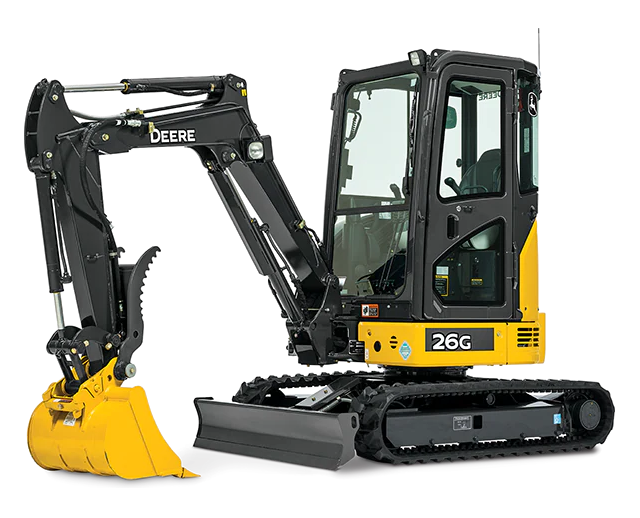Maximize Your Budget by Understanding the Expenses Connected With Construction Equipment Services
Understanding the full extent of costs associated with building equipment rentals is essential for maximizing your spending plan. What strategies can be used to efficiently take care of these costs and guarantee a much more effective rental experience?
Introduction of Rental Prices
When taking into consideration construction equipment services, recognizing the associated prices is extremely important for reliable budgeting and job preparation. Rental expenses can differ substantially based on numerous factors, including equipment type, duration of rental, and area. The preliminary rental charge usually shows the tools's market need and its linked operational capabilities, affecting the total cost.
In addition to the base rental rate, secondary costs might emerge, such as transport costs, gas additional charges, and maintenance fees. It is important to account for these added expenditures to properly evaluate the overall price of renting devices. Additionally, the rental duration can affect rates; longer rentals might get discounted rates, while short-term rentals might incur greater daily fees.

Break Down of Rental Prices
A comprehensive understanding of rental rates is crucial for specialists and job managers intending to enhance their budgets. Rental prices for construction equipment normally are composed of a number of components, consisting of base prices, time-based costs, and use costs.
Base rates are the core charges related to the rental of the equipment, commonly identified by the kind and size of the equipment. These prices can vary dramatically, affected by aspects such as equipment demand, schedule, and regional market patterns. Time-based charges, which may be daily, weekly, or monthly, serve to accommodate different project timelines and rental durations.
Furthermore, rental rates may consist of usage costs, which apply when devices is utilized beyond a defined threshold, ensuring that the rental company can represent damage. Seasonal demand variations can additionally impact rental rates, with peak construction seasons generally regulating greater prices.
Furthermore, comprehending the rental firm's policies relating to upkeep and insurance policy can give additional insight into the general cost framework. By examining these components, service providers can make enlightened choices, ensuring the choice of rental equipment aligns with both job needs and budget constraints.
Additional Costs to Think About
Recognizing the ins and outs of extra costs is essential for service providers to handle their overall service expenses properly. Past the basic rental prices, different extra fees can dramatically affect the complete price of tools leasing. These costs frequently consist of shipment and pickup charges, which can differ based on distance and logistics entailed in transferring the devices to and from the work site.
In addition, some rental companies may enforce gas additional charges if the tools is returned with much less gas than when rented. It is likewise vital to recognize potential cleansing costs, especially for specialized tools that calls for extensive maintenance after usage.

Thoroughly examining the rental agreement and making clear these additional costs upfront can help service providers guarantee and stay clear of unanticipated prices that spending plans remain intact throughout the project lifecycle.
Repair And Maintenance Expenditures
Normal repair and maintenance expenditures are commonly ignored factors that can dramatically influence the overall expense of construction tools rentals. When renting out devices, find it is critical to think about not only the rental charges however likewise the possible expenses connected with maintaining the machinery in optimum operating condition.
Lots of rental business include standard upkeep as part of the rental arrangement; however, much more unanticipated breakdowns or extensive repair work can lead to additional expenditures. It's important to evaluate the rental contract very carefully to comprehend what upkeep services are covered and what obligations drop on the renter.
Moreover, devices that is not well-kept can cause ineffectiveness at work site, potentially creating hold-ups and enhancing project expenses. To alleviate these risks, it is suggested to carry out regular examinations and keep open interaction with the rental provider concerning any kind of concerns that develop during use.
Insurance Policy and Obligation Prices
Insurance and liability expenses are critical elements that can dramatically impact the general expenditure of building tools services (mini excavator rental). These costs make certain that both the rental business and the customer are protected from prospective financial losses arising from accidents, damage, or burglary during the rental duration

In addition, clients ought to be conscious of any deductibles or exclusions in the insurance plan, as these can influence potential out-of-pocket costs. Comprehending the terms and conditions of any kind of insurance policy visit protection is essential to prevent unanticipated expenses. Ultimately, budgeting for insurance policy and obligation costs can assist guarantee a smoother rental experience and safeguard versus economic threats linked with building and construction projects.
Final Thought
In verdict, a thorough understanding of the prices associated with building tools leasings is vital for efficient spending plan administration. Inevitably, informed decision-making regarding tools rentals adds to the total success of building endeavors.
Rental expenses can differ considerably based on a number of aspects, consisting of devices type, period of leasing, and place (scissor lift rental). The rental duration can affect rates; longer services may certify for reduced prices, while temporary rentals could sustain higher day-to-day charges
By performing comprehensive research and involving with credible rental firms, specialists can effectively browse the complexities of rental prices, inevitably optimizing their monetary sources.
Past the common rental rates, different supplementary charges can significantly affect the overall expense of tools service. Rental business usually give responsibility insurance coverage that covers injuries to third parties or damage to property, while devices damage insurance policy can cover the expense of repair work or replacement have a peek at these guys if the rented devices is damaged.